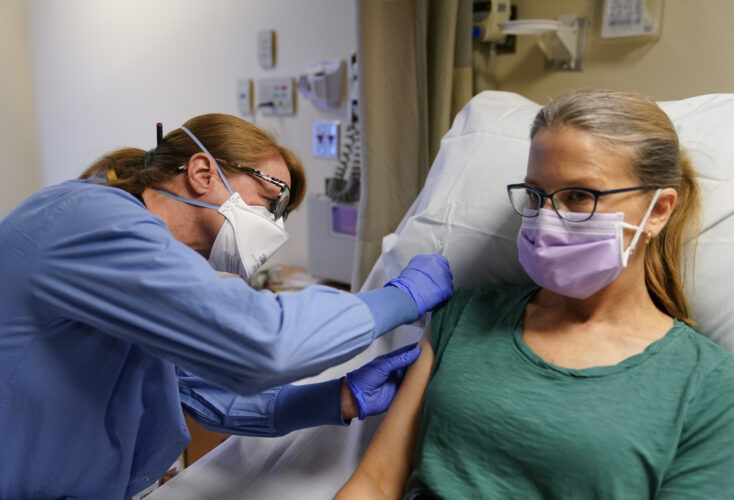Amidst ongoing vaccine controversy post Covid-19, news broke of another “life-saving” vaccine. The next big advancement in cancer treatment could be a vaccine.
The difference between this vaccine’s potential and the Covid-19 vaccine is that it endured decades worth of testing and is designed to shrink tumors and prevent cancer from returning rather than act as a preventative shot.
Learn the benefits of becoming a Valuetainment Member and subscribe today!
According to the Associated Press and multiple news outlets, targets for these experimental treatments include breast and lung cancer as researchers and scientists aim to also develop the vaccine for melanoma and pancreatic cancer.
“We’re getting something to work. Now we need to get it to work better” said Dr. James Gulley who helps lead a center at the National Cancer Institute that develops immune therapies, including cancer treatment vaccines.
According to Dr. Nora Disis from UW Medicine’s Cancer Vaccine Institute in Seattle, in order for a vaccine to work effectively, the compounds need to teach the immune system’s T cells to recognize cancer cells as dangerous. Once trained, T cells can then travel anywhere in the body and attack the dangerous cells.
“If you saw an activated T cell, it almost has feet” she said. “You can see it crawling through the blood vessel to get out into the tissues.”
The progress made on treatment vaccines has seen its challenges. Provenge, the first treatment vaccine to be approved in the U.S. in 2010 to treat prostate cancer, required processing a patient’s own immune cells in a lab and sending them back into their systems via IV. Treatment vaccines for early bladder cancer and advanced melanoma have been tested.
Patient volunteers are crucial to the research and only time will tell if enough volunteers would be willing to take on the challenge for the sake of their health and science, itself.


















Add comment